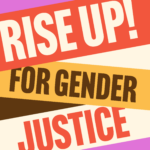
By Hassan Yussuff, Derrick Hynes, and the Hon. Patty Hajdu
In the four years since the release of the first-ever pan-Canadian study on the impact of domestic violence at work, unions, employers and governments have embarked on a remarkable joint project to help protect jobs and promote workplace safety.
We now have a common understanding of the magnitude of this problem and we must work together to support workers, mostly but not exclusively women, who are experiencing domestic violence. The evidence is clear. Domestic violence affects attendance, productivity, and retention. It follows people to work and puts jobs and safety at risk.
While it’s not the role of employers or unions to eliminate such a complex societal problem, workplaces can have an effect on how a worker is able to respond. The money a woman earns through employment can help her from becoming trapped and isolated in violent relationships, and ensures she can support herself and her children should she decide to leave.
And while not every abusive relationship will escalate to serious injury or death, it happens to women far too frequently – and workplace safety is at risk for her and potentially for her colleagues, as an abuser may look for their target at work.
That’s why, together, governments, employers and unions are taking action. The first step was passing Bill C-65, which clearly recognizes harassment and violence as a workplace hazard. The federal government has provided workers with job-protected, paid domestic violence leave. Employers and unions have negotiated additional paid leave and other workplace supports and accommodations. Unions have built a series of educational tools to better equip union representatives and promote awareness among members.
Our next step is to develop strong regulations on workplace violence that clearly lay out the steps that workplaces should take to respond to domestic violence at work, to manage and reduce risk, and to support workers who are affected. This work should build on positive steps that have already been taken across many organizations.
We are embarking now on a collective effort to promote awareness and ensure that workplaces are prepared.
With support from the Government of Canada, FETCO and the Canadian Labour Congress have partnered with the Centre for Research & Education on Violence against Women & Children at Western University to provide practical, workplace solutions including policies, tools and training materials that clearly delineate employer responsibilities related to domestic violence in the new harassment and violence regulations.
By promoting greater awareness about domestic violence, we hope to challenge the stigma and break the silence that enables the violence to continue – and which can put everyone at the workplace at risk if an abuser’s behaviour escalates.
Abusers seek control over the woman in their life, and isolation is a tool to keep the woman separate from others. People stay silent when they witness or suspect that someone close to them may be experiencing abuse for many reasons. Sometimes it’s uncertainty about whether what is happening is actually abuse. Maybe it’s not understanding how risky a situation really is. It might be that we don’t want to embarrass our co-worker by putting her on the spot, or we think the person is capable of handling it. Or maybe we just aren’t sure what we can do to help.
Breaking the silence is the critical first step for a woman to end the abuse she is experiencing. By giving workers, managers, human resource staff and union representatives tools they need to recognize the warning signs of domestic violence, we can better support and empower people experiencing abuse to safely speak with their friends and co-workers.
Clear workplace policies will be essential to helping manage risk and respond to specific situations. There is no one-size-fits-all approach to addressing domestic violence at work. Each worker will need different supports, and their situation and risk may change over time. But with better awareness and access to training and other resources, we are confident that workplaces will be better prepared to respond, keeping everyone safer, healthier and more productive.
Hassan Yussuff is the President of the Canadian Labour Congress, Derrick Hynes is the President and CEO of the Federally Regulated Employers – Transportation and Communications (FETCO), and the Honourable Patty Hajdu is the Federal Minister of Employment, Workforce Development and Labour.




